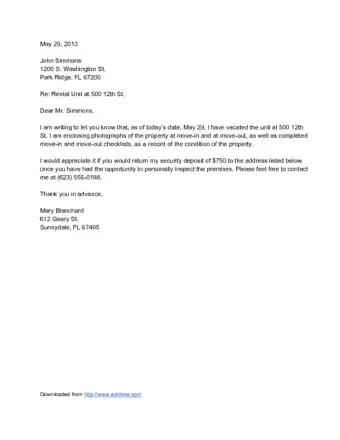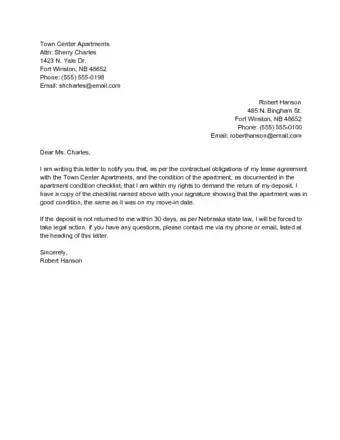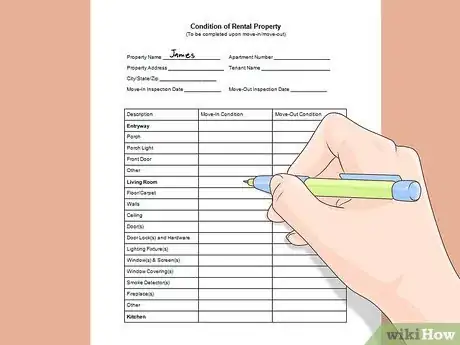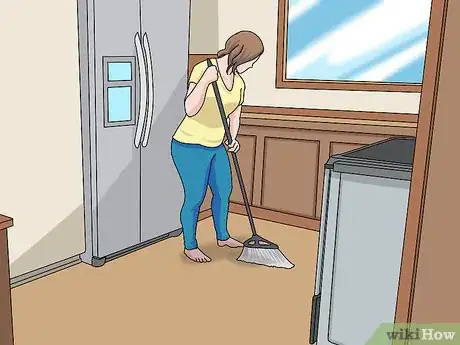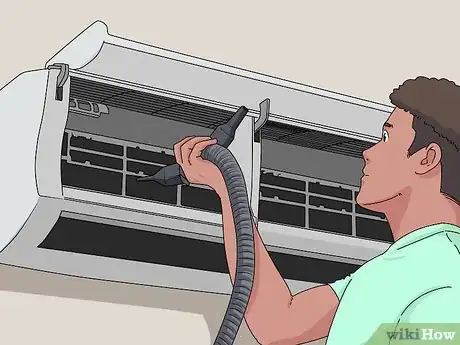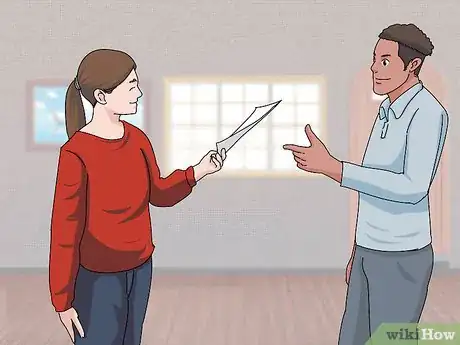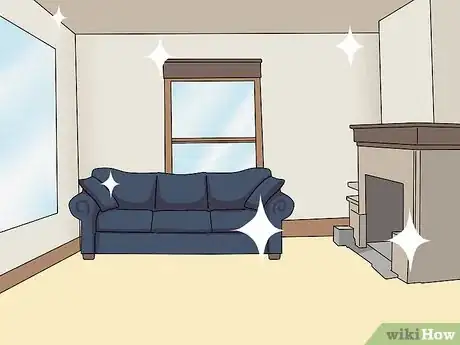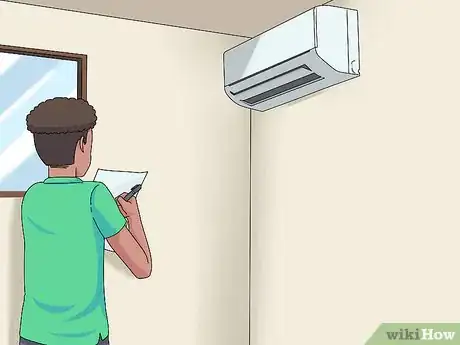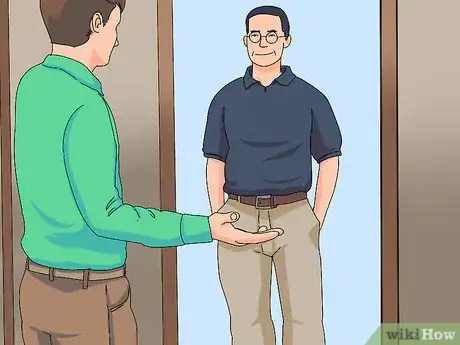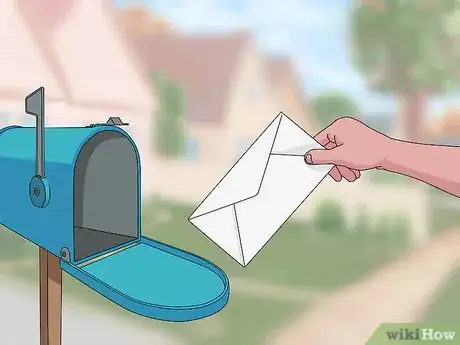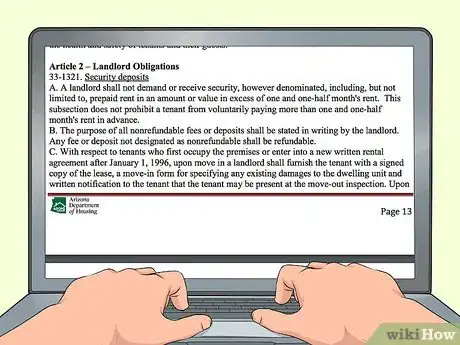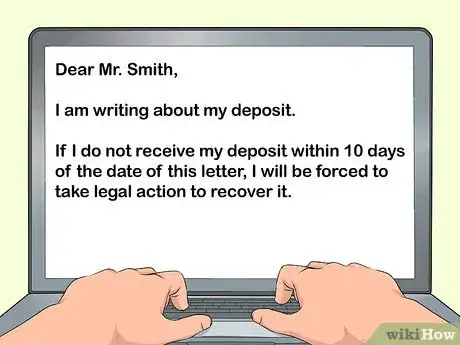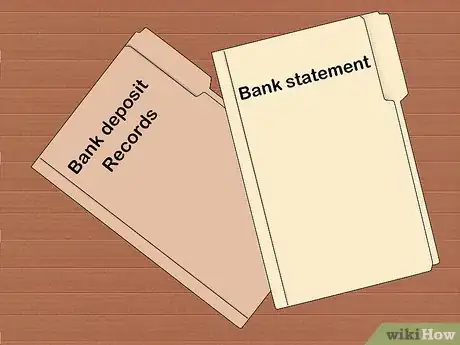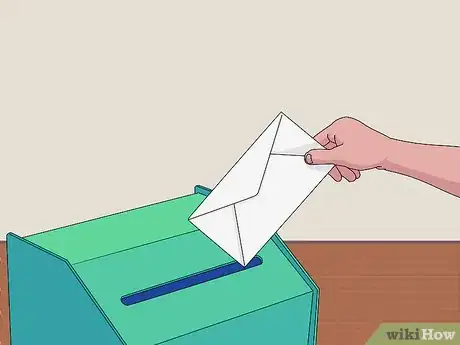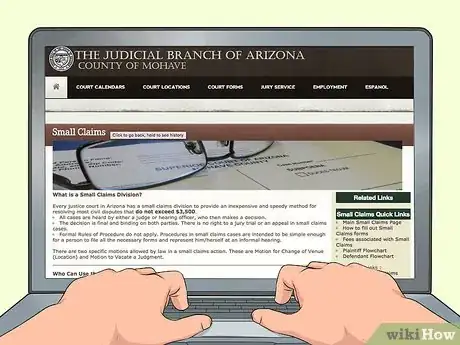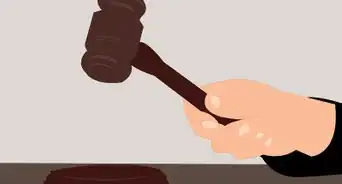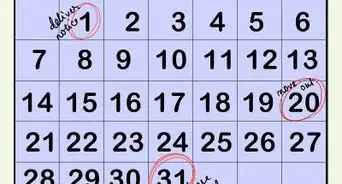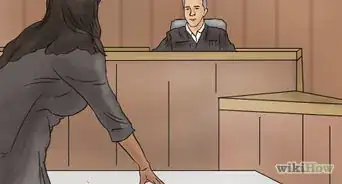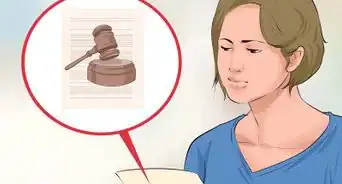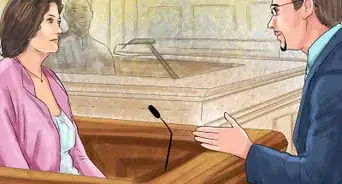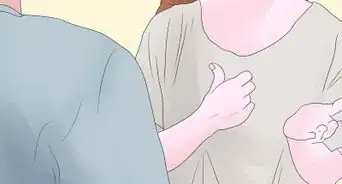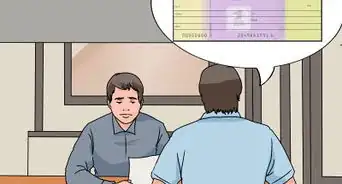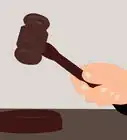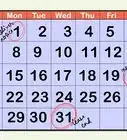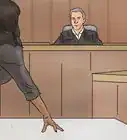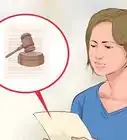This article was co-authored by Michael R. Lewis. Michael R. Lewis is a retired corporate executive, entrepreneur, and investment advisor in Texas. He has over 40 years of experience in business and finance, including as a Vice President for Blue Cross Blue Shield of Texas. He has a BBA in Industrial Management from the University of Texas at Austin.
There are 8 references cited in this article, which can be found at the bottom of the page.
This article has been viewed 186,012 times.
A security deposit is a sum of money paid by a tenant to a landlord in order to protect the landlord from repair and excessive cleaning bills. These could arise should the tenant leave the property in need of cleaning and/or repair when she moves out. If no repairs or cleaning are needed, the landlord must return the deposit to the tenant. Sometimes landlords are slow to do this, or withhold the deposit unfairly. If you are dealing with a landlord who is not fulfilling their obligation to return your deposit you can take action to challenge him.
Steps
Sample Move-Out Documents
Maintaining the Property During Your Tenancy
-
1Document the move-in condition of the property. The first thing you should do when you move into a new house is complete a thorough audit of the property. The purpose of this is to record the condition of the property when you moved in so you have a clear reference point when you are leaving. Do a walk-through making note of any damage or items needing to be cleaned or replaced. Take photographs of each room as well as any damaged areas discovered.[1]
- If possible, do the walk-through with your landlord and have her sign off on your notes. If she is not available bring along a friend so there is another witness to the condition of the property.[2]
- Being clear and unequivocal at this stage can make the resolution of any issues with your deposit when you leave much easier.
- Sometimes your landlord might give you an inventory of items, such as furniture and furnishings. Be sure to look through this and check it matches to what is actually in the house.
-
2Keep the property clean. Once you are living in the property it's important that you keep it well maintained, clean and generally looked after. Often a landlord keeps all, or a portion, of a tenant’s deposit simply to cover cleaning expenses after the tenant moves out. In order to avoid extraordinary cleaning expenses being deducted from your deposit, keep the property clean. It's much better to clean it regularly rather than attempting one enormous clean before you move out. Be sure to pay regular attention to:
- Ovens. Cleaning your oven on a regular basis will help keep it free from greasy build-up on the walls and burnt crumbs and spills on the bottom. Ovens should be cleaned at least twice a year by following the manufacturer’s directions for using the self-cleaning cycle. If your oven does not have a self-cleaning cycle, clean it manually by following the directions on a can of oven cleaner.
- Flooring. Regular cleaning helps prevent stains and keeps your floors from becoming dingy in appearance. Carpeting should be vacuumed, and other floors swept and mopped, once a week.
- Windows. Wash windowsills and window frames with soap and hot water every two to three months, clean windowpanes with glass cleaner at least once a month, and take down window treatments for cleaning at least twice a year.
- Paint and wall coverings. Walls should be wiped down with soap and water at least twice a year to prevent fading and yellowing. You may need to wipe down your walls more frequently if you smoke or have young children. A fresh coat of washable paint can make this task a much easier one!
- Bathroom fixtures. Scrub the tub and sink, as well as the toilet bowl, once a week to help cut down on lime and soap scum build up and keep bathroom fixtures from staining.
Advertisement -
3Keep the property in good repair. As well as keeping the property clean, you need to make sure that you deal with repairs speedily and efficiently in order to keep the property clean and sanitary.[3] Don't let anything build-up or it could cause you a problem when you try to get your deposit back. While normal wear and tear is expected, the legal definition of ‘normal wear and tear’ is fuzzy. In order to limit the risks of problems as much as possible, you should make every effort to leave the property in the exact same condition as you found it.
- Most residential leases require a tenant to make all minor repairs and report all major ones to the landlord in a timely manner. Check your lease to see which repairs are your responsibility and which are your landlord's. Take care of those that are yours right away, and report all others to your landlord immediately.
- Clogs and minor leaks should be repaired and properly cleaned up right away. Water damage and mold growth due to lack of basic plumbing maintenance can wind up being the responsibility of the tenant. It varies by state, so look up your local laws. Generally, if the cause of the mold is structural it is the landlords responsibility, but be sure to inform them of the mold.[4]
- Cleaning air filters and ductwork. Furnaces and air conditioning units should be maintained according the manufacturer’s instructions. If you are unsure how to maintain your unit, check the manufacturer’s website or ask your landlord for information and recommendations.
Leaving the Property
-
1Give adequate notice. When you decide to move out of a property it is important that you give your landlord the required notice as set out in your rental agreement. This will often be 30 days of notice, but will vary. Be sure you know this and are clear with your landlord. If you don't give them enough notice you may have to pay rent for the time after you move out, which may be taken out of your deposit.[5]
- Always make a copy of your notice letter and send it by registered mail. After you have sent it, speak to your landlord personally to ensure that there is no problem.
- It's important to keep copies of these documents as you will need them as evidence if there is a dispute.[6]
-
2Leave the property clean and in good repair. The property should be left thoroughly cleaned. Before you move out wash the windows, windowsills, baseboards, walls, switch plates, and ceilings. Ceiling fans and light fixtures should be cleaned and light bulbs replaced. Floors should be swept, mopped, and vacuumed, and a carpet cleaner used on any carpeting. You should also be sure to clean all appliances inside and out.
- Keep in mind the condition of the property when you moved in. You should be leaving it as you found it. Leaving a beautifully cleaned property will make the best impression on your landlord when they come to inspect it.
- It's a good idea to contact your landlord first to confirm her expectations for the cleaning in order to avoid under or over cleaning.[7]
-
3Fully document the property’s condition. When you have completed the final clean and moved out all your things, you need to go through the house and repeat the thorough audit that you carried out when you moved in. Using that initial record as your guide, go through systematically documenting the condition of the property and it's furnishings. You should get plenty of evidence of the condition of the property.
- Take lots of photographs and be sure that your photographs are clear and large enough to show the details. You may want to consider using a digital or film camera instead of your cell phone, if your phone does not take high quality pictures.[8]
- Do a walk-through of the property with a video camera rolling. Keep in mind that whoever actually shoots the video may need to be available if you sue your landlord and need to use the video in court, so you may wish to act as the camera-man yourself.
- Complete a move-out checklist as a written record of the condition of the property when you left and make copies.
-
4Invite your landlord to inspect the property. Once you have completed your check you should speak to the landlord who will need to inspect the property for damage before signing off on your deposit. It's a good idea to try and be present when your landlord does this and bring a copy of your documentation with you.[9]
- In some states there are laws which require the landlord to notify you when they will conduct the inspection and offer you the chance to be there, but this is not the case for every state so be sure to check your local regulations.[10]
Knowing When and How to Contact Your Landlord
-
1Mail your landlord a letter requesting that she return your deposit. Be polite and simply inform the landlord that you have vacated the property and would appreciate the return of your deposit once she has had a chance to complete any checks and paperwork. When mailing the letter, include copies of the move-in and move-out photographs of the property as well as your completed move-in and move-out checklists.
- Make sure you keep extra copies of all your records of the condition of the property. You will need them if there is a dispute with the landlord.
-
2Determine if the deadline for returning the deposit has passed. If time has passed and you have not received the deposit or any confirmation from the landlord that it is due to you, go ahead and check to see if they are in breach of regulations. Laws regarding a landlord’s return of deposit to a former tenant vary from state to state, but typically you should hear from them within a few weeks of moving out.[11] Check your state’s code to determine how long your landlord has to return your deposit. You can locate your state’s code a couple of different ways:
- Find your State’s website. Many states websites may be found by typing the state’s postal code plus “.gov” into your browser’s address bar, for example, Indiana’s website is located at in.gov and Arizona’s at az.gov. Try it! Most state’s websites will contain the official state code or a link to the code on another reputable website.
- Run a Search. Run a search at your favorite search engine for “YOUR STATE state code”. For example, to find California’s state code, you would search “California state code” or to find North Dakota’s code, you would search “North Dakota state code”.
- You can also use an online database to access information on your state's laws.[12]
-
3Write a demand letter. If your landlord’s time for returning your deposit has passed, try appealing to them more informally first, but if you don't receive anything you will need to write a demand letter.[13] This letter will give the landlord a certain number of days to return to your deposit or provide an explanation for not doing so. When writing a demand letter be sure to give a clear deadline. Demand letters generally give a party 10 days to comply. Be sure to be specific about when the 10 days begins, for example, "within 10 days from the date of this letter".
- State what will happen if the deadline passes without the return of your deposit. Giving someone a deadline by which to do something means little without a clear explanation of what will happen if the deadline passes.
- Be specific about what you will do if your deposit is not returned, for example, “if I do not receive my deposit within 10 days of the date of this letter, I will be forced to take legal action to recover it.”
- Mail it by certified mail. Certified mail provides you with legal proof that the landlord received your letter. Keep the return receipt with your copy of the letter.[14]
- There are website that can help you construct an appropriate demand letter.[15]
Considering Further Action
-
1Gather your evidence. If despite all your efforts you have still not received any notification about your deposit from your landlord, you may wish to consider taking further action to get the money back. Before you go down this road be sure you have complete copies of all the pertinent records. You'll need all the documentation relating to your tenancy and your deposit.
- Be sure you have the receipt and bank records to show that you paid the deposit when you moved in.
- Gather together your bank statements to prove that you always paid the rent and are not in arrears to your landlord.
- Compile all your records of the condition of the property before you moved in and when you moved out. This should include all the photographs and inventory checklists you have. Be as thorough as possible.
-
2Contact your landlord again. Once you have all the evidence, contact your landlord one more time before you go ahead a file a small claim. Write a "letter before action" to your landlord to inform them that you intend to take them to court if they do not deal with your deposit. Going to court should be a last resort, but making it clear to your landlord that you are prepared to go that far can help speed up the return of your deposit.
- The letter should very clearly state the amount of your deposit and when and how you paid it. Include copies of receipts to evidence this.
- If you are disputing deductions your landlord wants to make to your deposit, you should clearly set out why you object to these.
- Set a clear deadline for a response. There is no fixed amount of time you should give them, but 14 days is reasonable.
-
3File a small claim. If your landlord does not return your deposit or an itemized list of costed deductions, then you can take them to the small claims court. You will be able to ask for your deposit plus court filing fees and interest. If you are successful you could recover monetary damages equalling to two or three times the security deposit as well as the costs of bringing the claim in court costs and attorney bills (if applicable).[16]
- For information on filing a small claim in your area, visit your County Court’s website. You can locate your County Court’s website by using the State Court Website Directory
- Filing a claim should always be a last resort, so be sure to exhaust all the other avenues first. But if you have a legitimate grievance you are entitled to receive your deposit.
- A small claim can costs as little as $50 to file, and will typically be dealt with quickly by a Judge.
- You probably won't need a lawyer and having clear documentation and records of the condition of the property is the key to winning. Lots of clear photos, copies of your deposit payment and letters to the landlord are essential.[17]
Tips and Warnings
- Even if you get some or all of your deposit back, the landlord may still have the right to demand payment for damages they can prove in court.
- Some states have laws that permit a tenant to claim double or triple the amount of the deposit illegally withheld by the landlord, plus reasonable attorneys' fees.
- A landlord who claims not to have kept your deposit properly for return may also be liable for possible criminal charges of embezzlement or fraud.
References
- ↑ http://realestate.findlaw.com/landlord-tenant-law/security-deposit-laws.html
- ↑ http://www.nolo.com/legal-encyclopedia/protect-security-deposit-move-in-30231.html
- ↑ http://www.nolo.com/legal-encyclopedia/tenants-rights-privacy-repairs-faq-29066-2.html
- ↑ http://ohmyapt.apartmentratings.com/mold-removal-is-it-your-responsibility-or-your-landlords.html
- ↑ http://www.nolo.com/legal-encyclopedia/get-security-deposit-back-29695.html
- ↑ http://www.nolo.com/legal-encyclopedia/get-security-deposit-back-29695.html
- ↑ http://www.nolo.com/legal-encyclopedia/get-security-deposit-back-29695.html
- ↑ http://www.nolo.com/legal-encyclopedia/get-security-deposit-back-29695.html
- ↑ http://www.nolo.com/legal-encyclopedia/get-security-deposit-back-29695.html
- ↑ http://realestate.findlaw.com/landlord-tenant-law/security-deposit-laws.html
- ↑ http://www.nolo.com/legal-encyclopedia/get-security-deposit-back-29695.html
- ↑ http://www.nolo.com/legal-encyclopedia/security-deposit-limits-deadlines-your-state-36186.html
- ↑ http://www.nolo.com/legal-encyclopedia/sample-demand-letter-return-security-deposit.html
- ↑ http://www.nolo.com/legal-encyclopedia/sample-demand-letter-return-security-deposit.html
- ↑ http://www.courts.ca.gov/11150.htm
- ↑ http://realestate.findlaw.com/landlord-tenant-law/security-deposit-laws.html
- ↑ http://www.nolo.com/legal-encyclopedia/get-security-deposit-back-29695.html
